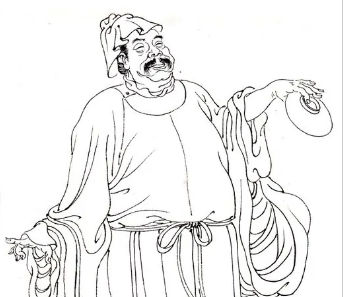In the early Ming Dynasty, a military coup that shook the court and the people - the Jingnan Rebellion, changed the fate of the Great Ming Dynasty. Zhu Di, as a vassal prince, rose up in rebellion against Emperor Jianwen, and the process was full of difficulties and obstacles. Zhu Di's famous saying "Success or martyrdom" reflects his determination and courage. This article will explore the difficulties of Zhu Di's rebellion and the profound impact of this power struggle.

I. Background and difficulties of the rebellion
As the fourth son of Ming Chengzu Zhu Yuanzhang, Zhu Di was sealed as the Prince of Yan and stationed in Beiping (now Beijing). After Emperor Jianwen ascended the throne, he implemented the policy of reducing the power of the vassal princes, which caused strong dissatisfaction among Zhu Di. When Zhu Di rose up, he faced the central government controlled by Emperor Jianwen as well as the resources and troops of the entire country. He only had tens of thousands of troops, while his opponent was the military force of the entire country. This huge gap made Zhu Di's rebellion seem almost impossible to succeed.
II. The difficult campaign process
At the beginning of the rebellion, Zhu Di encountered many difficulties. Due to the powerful central army of Emperor Jianwen, Zhu Di had to rely on surprise attacks and guerrilla tactics to fight against. His army was frequently at a disadvantage in the war, but Zhu Di eventually turned the tide of the war with his tenacious will and excellent military skills. After three years of fierce battles, Zhu Di finally captured Nanjing, Emperor Jianwen disappeared, and Zhu Di ascended the throne as the new emperor, namely Ming Chengzu.
III. The determination of "Success or martyrdom"
Zhu Di's "Success or martyrdom" demonstrated his attitude towards this rebellion: either seize the throne or sacrifice his life. This determination was fully demonstrated in the difficult war. Zhu Di knew that if he failed, not only himself, but also the generals and soldiers who supported him would face the fate of death. Therefore, this struggle was not only a struggle for power, but also a contest for life and death.
Conclusion:
The Jingnan Rebellion was a major military coup in Chinese history, and Zhu Di's road to rebellion was full of difficulties and challenges. He faced the entire country with tens of thousands of troops and ultimately achieved the image of a great leader. Zhu Di's story tells us that history is often written by those who dare to take risks and make decisions. The Jingnan Rebellion not only changed the political landscape of the Ming Dynasty, but also became an eternal topic in Chinese history.
Disclaimer: The above content is sourced from the internet and the copyright belongs to the original author. If there is any infringement of your original copyright, please inform us and we will delete the relevant content as soon as possible.






























